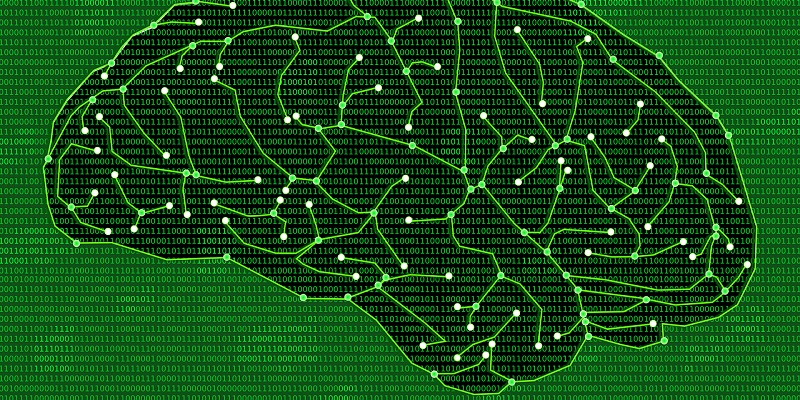In today’s rapidly evolving technological landscape, the convergence of artificial intelligence (AI) and DevOps is poised to revolutionize the way applications are built and deployed. The pace at which multiple classes of AI are converging promises to accelerate the rate at which higher quality applications are developed and released. In this article, we will explore how recent AI advances have focused on improving developer productivity and how AI is transforming the role of DevOps professionals. Additionally, we will delve into generative AI tools that automate DevOps workflows and examine the use of AI for code comparison and application security.
AI’s focus on productivity improvement
The recent advances in AI have primarily revolved around employing large language models (LLMs) to enhance developer productivity. By leveraging LLMs, AI assists developers in tasks such as code completion, bug fixing, and providing relevant code snippets for quicker implementation. The use of AI in this capacity empowers developers to accomplish tasks more efficiently, enabling them to focus on solving complex problems and delivering higher-quality code.
AI as a “Pair Programmer”
AI is not simply restricted to assisting developers but serves as a digital “pair programmer” for many DevOps professionals as well. With its ability to think through problems and brainstorm innovative solutions rapidly, AI acts as a valuable collaborator. By analyzing vast amounts of data and offering insights, AI helps DevOps teams streamline their decision-making processes, reduce errors, and expedite project timelines. This symbiotic relationship between AI and DevOps professionals holds immense potential for increased efficiency and productivity.
Generative AI tools for automating DevOps workflows
Taking automation to the next level, generative AI tools utilize natural language to instruct trained LLMs in generating code scripts that automate DevOps workflows. This breakthrough enables the creation of intelligent systems that can seamlessly handle repetitive and time-consuming tasks, freeing up valuable resources. With generative AI tools, DevOps teams can automate processes such as configuration management, deployment, and monitoring, leading to faster releases and enhanced operational efficiency.
Using AI for code comparison and application security
In addition to automating workflows, organizations can leverage AI, specifically vector databases, to compare code against examples recognized by trained LLMs. The primary objective is to identify potential defects in newly written code that may compromise application security. By analyzing code patterns and recognizing vulnerabilities, AI assists in strengthening the security posture of applications. This proactive approach enables DevOps teams to address security concerns earlier in the development and deployment phases, reducing potential risks.
Building and maintaining multiple AI models
Realizing the full potential of AI requires the development and maintenance of multiple types of AI models. Each model serves a specific purpose, such as code generation, bug detection, or performance optimization. To maximize the benefits, DevOps teams must continuously update and refine these models as new data and insights become available. By committing to ongoing model maintenance, organizations can ensure that their AI-driven systems remain accurate, reliable, and effective.
Promoting transparency and trust in AI models
As AI becomes increasingly integrated into DevOps workflows, the ability to review AI models becomes crucial to promote transparency and trust. Organizations must adopt mechanisms that allow stakeholders to understand how AI models make decisions, making them more comfortable with automated processes. By implementing explainable AI techniques, organizations can build trust among developers, testers, and end-users, mitigating concerns about the “black box” nature of AI-powered systems.
Balancing excitement and concerns about AI
While the potential of AI to revolutionize DevOps workflows is exciting, it is essential to acknowledge the fear and trepidation surrounding its implementation. Concerns regarding job displacement and ethical considerations loom over the development and deployment of AI-powered systems. However, it is crucial to address these concerns by fostering dialogue, promoting responsible AI practices, and incorporating ethical frameworks in AI development. By doing so, organizations can leverage AI’s transformative power while ensuring it aligns with societal values.
Streamlining DevOps workflows at scale
As multiple classes of AI technologies converge, DevOps teams can more easily manage workflows at scale. By harnessing the power of AI, organizations can optimize resource allocation, prioritize tasks, and identify potential bottlenecks more efficiently. AI enables teams to automate repetitive and mundane activities while facilitating collaboration and innovation. The result is streamlined processes, faster software development lifecycles, and enhanced agility in adapting to changing business requirements.
The convergence of AI and DevOps represents a significant milestone in software development, promising higher-quality applications developed and deployed at an accelerated pace. By utilizing AI to improve developer productivity, acting as a “pair programmer,” and implementing generative AI tools, DevOps teams can streamline workflows and reduce manual effort. Furthermore, leveraging AI for code comparison and application security enables organizations to enhance application robustness. To fully capitalize on these advancements, maintaining and reviewing AI models transparently and fostering trust will be imperative. Although concerns persist, AI advances will soon render the debate moot, leading to a future where the possibilities of AI in DevOps are fully realized.

